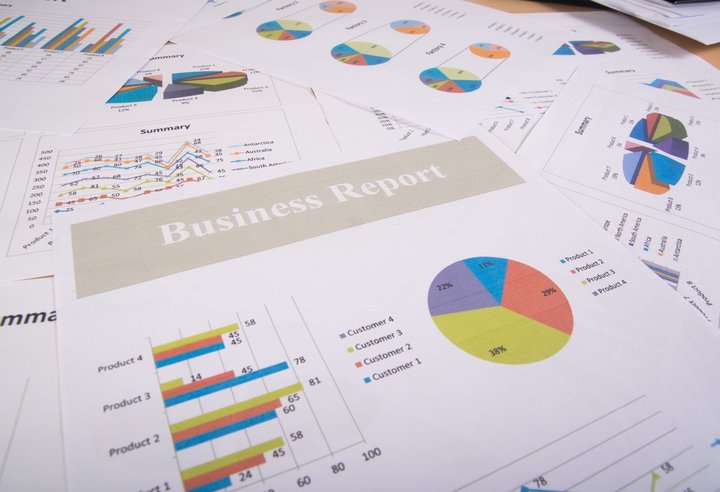Most business owners don’t think about their business credit score until they need funding. By that point, it’s often too late to make changes. A low score can block approvals, lower credit limits, or even push interest rates higher than expected. On the other hand, a strong business credit profile can open doors to better terms, higher funding amounts, and long-term financial flexibility.
Understanding your score isn’t complicated, but it does take the right guidance. In this guide, you’ll learn how business credit scores are calculated, how to access yours, and what steps you can take to improve it. You’ll also see how Fund&Grow helps clients use this knowledge to secure high-limit, 0% interest business credit, without damaging their personal credit profile.
Key Takeaways
- A business credit profile shows how reliable your business is when it comes to managing financial obligations.
- Scores are tracked by major bureaus like Dun & Bradstreet, Experian Business, and Equifax Business.
- Good scores can lead to higher credit limits, better terms, and more opportunities to grow your business.
- You can build your business score by paying on time, keeping balances low, and working with vendors that report to credit agencies.
- Fund&Grow coaches business owners through every step of building strong credit and using it to access 0% interest business funding.
How a Business Credit Score Works
A business credit score is a number that shows how trustworthy your business is when it comes to managing money. It helps lenders, vendors, and financial institutions determine whether to extend credit to you, the amount to offer, and the terms to set. The higher your score, the more confidence they have in your ability to repay what you borrow.
Unlike personal credit scores, which are tied to your Social Security Number, a business credit score is linked to your Employer Identification Number (EIN). This score is based on how your business handles credit, payments, and financial responsibilities over time.
There are three main agencies that track business credit scoring: Dun & Bradstreet, Experian Business, and Equifax Business. Each one uses its own scoring system and draws from different data sources. Some scores are based on payment history alone, while others include public records, credit usage, and how long your business has been active.
How a Business Credit Score Is Calculated
Each business credit bureau uses its own formula, but most scores follow a few key patterns. The score is based on how your business handles its financial obligations. The most important factor is how consistently you pay your bills. Late payments, missed payments, or defaulted accounts can bring your score down quickly, especially if they’re recent.
Credit utilization is another major factor. This refers to the percentage of your available credit that your business is utilizing. Keeping your balances low shows that you’re managing credit responsibly and not relying too heavily on borrowed funds.
Other factors include how long your business has had credit, the number of open credit lines or accounts, and any public records tied to your business, such as tax liens or judgments.
Here’s a simple breakdown of common business credit scores:
- Dun & Bradstreet PAYDEX Score (0–100): Focuses mostly on payment history. A score of 80 or above means your business pays on time or early.
- Experian Intelliscore (0–100): Looks at payment trends, credit utilization, and public records.
- Equifax Business Credit Risk Score (101–992): Considers a broader range of financial data, including balances and legal filings.
How to Use a Business Credit Score
Your business credit score is a tool. When used correctly, it can help you qualify for high-limit business credit cards, better vendor terms, and financial opportunities that aren’t available to businesses with poor or no credit history.
Lenders use your score to decide how much they’re willing to lend, how long they’ll give you to repay it, and what interest rate they’ll charge. A strong score often means higher credit limits and lower interest rates. It also makes your business more attractive to potential partners, suppliers, and insurers.
When you work with Fund&Grow, you learn how to use your business credit score to your advantage. The coaching helps you understand which credit cards to apply for, how to approach the right banks, and how to maintain a strong credit profile, allowing you to continue accessing funding as your business grows.
How to Improve Your Business Credit Score
Improving your business credit score starts with simple habits. Pay every bill on time. Even one late payment can lower your score, especially if it’s recent. If a vendor or lender offers early payment incentives, take them. Early payments can raise your score with certain bureaus, especially Dun & Bradstreet.
Keep your credit usage low. Using less than half of your available limit demonstrates control and maintains a healthy utilization ratio. Avoid applying for multiple credit accounts in a short period. Too many inquiries can signal risk and lower your score.
Open accounts with vendors that report to credit bureaus. Not all of them do, so choose carefully. Having a mix of reporting vendors and business credit cards helps build a strong profile over time.
How Long Negative Items Stay on Your Business Credit Report
Negative marks can affect your business credit score for several years. The longer they stay on your report, the more they influence how lenders view your business. While their impact fades over time, they still contribute to your overall credit profile until they are fully removed.
According to industry standards followed by agencies like Experian, different types of negative data remain on file for varying lengths of time. Here’s a general breakdown:
|
Types of data |
How long it stays on your report |
|
Trade accounts |
3 years |
|
Bankruptcies |
9 years and 9 months |
|
Court judgments |
6 years and 9 months |
|
Tax liens |
6 years and 9 months |
|
UCC (Uniform Commercial Code) filings |
5 years |
|
Collection accounts |
6 years and 9 months |
|
Bank, leasing, and government accounts |
3 years |
What Is an Acceptable Business Credit Score?
An acceptable business credit score is one that gives lenders confidence in your ability to manage debt. While each credit bureau uses its own scoring range, most lenders look for a score that shows consistency, low risk, and a track record of on-time payments.
Here’s what’s generally considered a strong score across the three major agencies:
- Dun & Bradstreet (PAYDEX): 80 or above
- Experian Business (Intelliscore): 76 or higher
- Equifax Business: 620 and up
Scores below these ranges may still qualify for credit, but the terms are often less favorable. This can result in lower limits, higher interest rates, or increased scrutiny during the approval process.
Access Credit That Moves Your Business Forward
A business credit report reflects how financially reliable your business appears to lenders and vendors. It’s reviewed by the main commercial credit bureaus and can influence everything from funding opportunities to supplier relationships. Scores typically range from 0 to 100, and the closer you are to the top, the more trustworthy your business looks on paper.
Fund&Grow helps you turn your business credit report into a powerful tool for growth. Through expert coaching, you’ll learn how to build business credit, apply with confidence, and access high-limit business credit cards that offer 0% interest for an introductory period.
These cards are issued in your business’s name and can be used for a wide range of expenses, from everyday operating costs to larger investments. With personalized support, you’ll also learn how to manage and rotate multiple accounts over time, helping you extend your access to interest-free credit while protecting your personal credit when kept in good standing.
Contact us now to get started!
Disclaimer:
This article is for informational purposes only and does not constitute legal or financial advice. Always consult a certified professional or accountant to understand how credit laws apply to your specific situation.
Frequently Asked Questions
Do I Have a Business Credit Score if My Business Is New?
If your business is new, you may not have a credit score yet, but that doesn’t mean you can’t start building one right away. A business credit score is established once your business starts using credit accounts in its name and EIN. Until that activity starts, there’s nothing for credit bureaus to track.
Opening accounts with vendors that report to business credit agencies is a smart first step. Using a business credit card and paying bills on time also helps build your profile. Over time, these actions create a payment history that forms the foundation of your score.
 About the Author:
About the Author:
Ari Page is the Founder and CEO of Fund&Grow, helping entrepreneurs, investors, and small business owners secure up to $250,000 in 0% interest business credit cards. Since 2007, he has grown Fund&Grow into an Inc. 5000 company, securing nearly $2 billion in business credit cards for thousands of clients. With 6,000+ 4.9-star reviews and an A+ BBB rating, Fund&Grow is a trusted leader in business funding. Ari is also the author of Fund&Grow: Easy & Affordable Ways to Get Money for Your Business and a passionate advocate for mindset, success, and the Law of Attraction. He lives in Spring Hill, FL, inspiring others to grow their businesses and achieve financial freedom.
Popular Posts
Instantly Pre-Qualify
Want Actionable Information, Tools and Resources To Quickly Acquire Business Capital, Credit and Funding?
I take tremendous pride in building positive and lasting relationships in my businesses and personal life. Every member of my team is committed to helping our clients get the maximum amount of funding possible and achieve their highest growth potential.



 Share
Share









